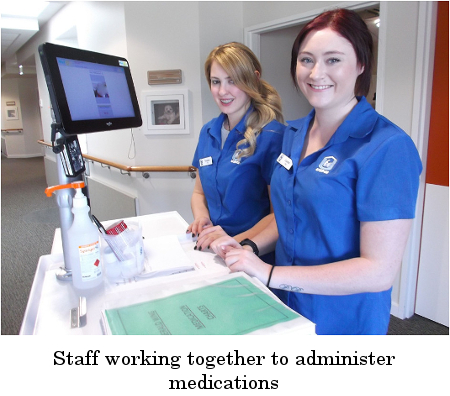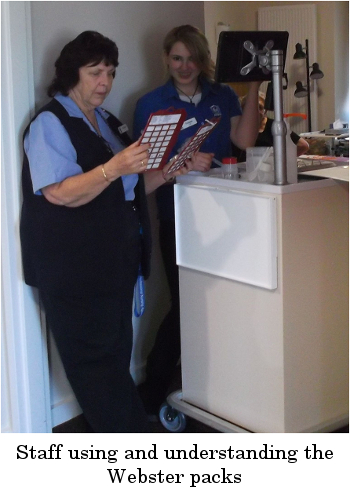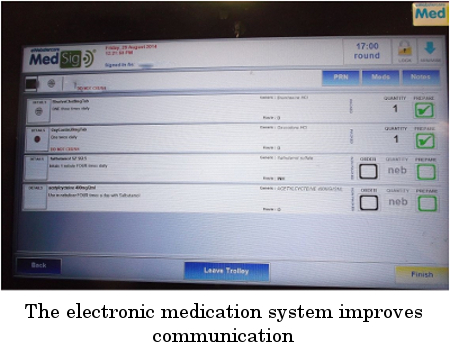UPA Gumleigh Gardens - Medication Errors: Collaborating With All Stake Holders
Medication Errors: Collaborating With All Stake Holders
UPA Gumleigh Gardens is a new facility located in the Wagga area which has been operating for one year. Opening a new facility poses various challenges, one of these being the development of a robust system for the safe delivery and administration of medications. Working as a team, together with both internal and external stakeholders has worked really well in helping us to achieve our goal in providing a safe medication system for our residents.
Communication in any aged care facility can be very challenging at the best of times. While the new medication system allows us to directly communicate with pharmacy through electronic means we still communicate with our pharmacy the non tech way as well by calling, faxing and having face to face meetings on a regular basis. The relationship between the pharmacy and our facility is imperative to our day to day operations and maintaining this communication is important to both parties.
In relation to medication errors, our facility relies on several things to go right to have an effective, efficient system that works well. These include; communication, training for staff and pharmacy, education for our allied health professionals such as doctors, Dementia Behaviour and Management Services (DBAMS), CNS, DBMAS and other health professionals, involving internal and external resources to support staff and the auditing process.

The workforce is supported and encouraged to complete the circle of medications administration; this includes actioning outstanding requests, following up with doctors in a timely manner, ordering supplies etc. Staff are taught the skills to manage this from the first day of training for medication administration and the equal importance of following up on outstanding issues is reinforced.
Documenting errors is an important part of our improvement process as it helps us to identify the areas where staff need further training. All staff and in particular, new staff are encouraged and supported to feel comfortable in identifying and document any errors. When an error occurs in any part of the medication administration process, our staff will complete an incident report and actions and preventative measures are put in place. The incident reports for pharmacy errors are actioned and sent to pharmacy for their completion. This has been very effective in decreasing our pharmacy errors and having errors corrected in a proactive and efficient manner. Medication errors are also discussed at our MAC meeting each quarter and action plans are put into place.
We encourage our doctors to attend a case conference for each of their residents at a minimum of once per year or more frequently as required. During our case conference we discuss medication management and the doctor will assess the need of certain medications and attend RMMR (medication review) as required. For all residents who have poly-pharmacy we insist on a medication review being attended. We also involve Allied Health in the management of medications, medication errors and reviews of medication effectiveness. DBAMS and DBMAS review any residents as needed and make suggestions which then involve the doctor and pharmacy in this discussion. DBAMS will refer any resident to the psychogeriatrition for them to review their medication as needed and make suggestions to the doctor who actions these as required.

As part of our auditing system we consult with the pharmacy to reprint all our primary medication charts 3rd monthly for an up to date record of medications and requiring the doctors to visit to review and sign the Medication chart ensuring they visit every 3 months.
Medications administrations process works well if all these areas are monitored closely and actioned upon in a timely manner. We are continuously working towards having no medication errors for the month but we understand with the demands on care staff and disruptions they continue to face in their day to day work, increases the risks leading to errors occurring.
0 comments